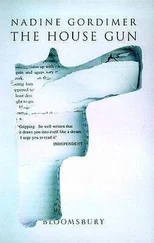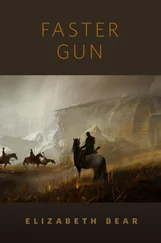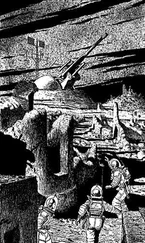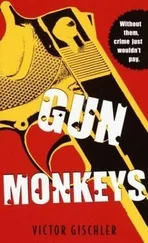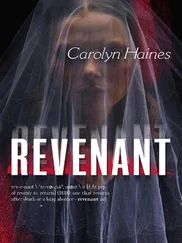“You going to piss that away?” a voice said from behind Brezan.
Brezan turned around, quelling his instinct to punch out the speaker. Because that would end so well. “What’s it to you?” he said.
The speaker was either a student or faking it very well. He had a cloud of curly hair and an olive complexion complicated either by decorative indigo-dyed scars or some kind of medical condition, Brezan couldn’t tell which. “Well,” the student said, “I thought for a while there you were about to throw up, but you don’t look that drunk.”
“Good to know,” Brezan said.
“What the hell are you doing messing with us in the university district, anyway? We don’t want you here.”
“Yes,” Brezan said dryly, unsurprised that the student had identified him, “a number of you have made that quite clear. Honestly, it made more sense”—he scrabbled for a number—“five drinks ago.”
“Well,” the student said, “then you can buy me one. I’m broke.”
It would at least be a distraction from the moral bankruptcy of his decision four hours past. “Sure,” Brezan said, “why not. Just one moment.”
After he’d relieved his bladder, they sauntered out of the restroom together. Several people arguing about a drama looked up, gave Brezan distinctly hostile stares, then resumed their discussion. Brezan slid his drink across the bar to the student. “I hope you like that stuff,” he said.
“I like anything that’s free,” the student said, and tossed the liqueur back. “Your government’s terrible, has anyone told you that?”
Brezan snorted. “I don’t think anyone thinks it isn’t terrible.” He resisted the urge to add “young man” to the end of the sentence. At fifty-three years, he wasn’t all that old by hexarchate standards, which was part of the problem. Even Lozhoi had decades on him, which made it a miracle that she took him seriously.
“Oh, I don’t think you understand,” the student said. He finished the liqueur. “Do you have any more of this stuff? It’s better than the swill I usually drink.” His scars-tattoos-whatever had now brightened to a dull magenta.
“Are your personal decorations supposed to be doing that?” Brezan said, deciding that this was not a conversation where tact was going to be a major feature.
“Oh, yes,” the student said. “I paid extra for that. Had to save from my stipend and all that for the mod. You’re not supposed to spend on frivolous shit, but what good is life without some frivolous shit?”
Brezan shrugged and gestured at the bartender. The bartender yawned and sidled over to refill the glass. At that point, the student and the bartender either began flirting with each other or holding a passionate debate on the fluctuating reliability of public transportation.
He was starting to relax for the first time all day when the door burst open: Emio, accompanied by a woman and a man that Brezan recognized as Shuos security despite their shabby clothes. (“We save the flashy red-and-gold uniforms for when we’re trying to be targets,” Mikodez had explained to Brezan a lifetime ago. “In real life, you think we like being shot at?”)
“High General,” Emio said, “I need you to—” Her gaze fell on the student with the now-blue facial scars, which were glowing faintly. “High General, step away from him now .”
Brezan might have been drunk, and he might be one of the more notorious crashhawks in Kel history, but he knew when to follow an order. He dove out of the way, tripped over a shoe someone had surreptitiously taken off, and went sprawling. He slammed hard into the floor and saw a bright red glare in his field of vision as the sudden fall tripped the automatic medical diagnostics.
Meanwhile, the student backed away from Emio and her fellow agents, made a dreadful choking noise, and collapsed into a heap. The glass tumbled to the floor and shattered. The reek of liqueur grew even stronger.
Despite the blood dripping from his nose, Brezan scrambled to his feet. “Get medical attention,” he said, or thought he said. It was hard to speak clearly through the bubbling froth in his mouth.
One of the Shuos agents had already reached the student. “Dead,” she said. “This establishment is under interdict. Meanwhile—”
“On it,” Emio said. “High General, let’s get you out of here.”
“The student —” Absurdly, he couldn’t seem to think of anything but the scars, which were now glowing brightly. Where have I seen that —
“I’ll debrief you when we get you home,” Emio said in a sharp undertone. “Come on.”
Brezan spent the ride home in a daze. Emio applied first aid to the broken nose, including a painkiller, although Brezan was too stunned by events to notice much of the pain. He stared out the flitter’s windows as the city receded below them. Fog had rolled in from the river that bisected it, and the gray blur suited his mood.
“My bad judgment,” Emio said once she’d gotten him into his office.
“As I recall,” Brezan said, “I’m the one who went out to get drunk.” He had made a hash of that too, but he wasn’t going to admit to that unless pressed.
“Oh,” Emio said, as he had known she would, “we were on site keeping an eye on you. Should have said something when—” Her mouth tightened, and she looked away.
Brezan’s head was starting to pound. “Do tell. It’s the student, wasn’t it? What the fuck was that, an allergic reaction?”
Emio met his eyes. “Yes, but not the way you’re thinking. His name won’t mean anything to you, although I can get you his profile. The relevant part is that he belonged to the Student Calligraphers’ Society.”
Brezan remembered that from one of the many briefings on protest groups. “Fuck. The corpse calligraphers.”
Corpse calligraphy was frowned on in polite society, but it had survived as a practice for centuries despite the hexarchate’s attempt to stamp it out. As Brezan’s fathers had explained to him when he was a child, the regime had never gotten over the embarrassing fact that one of the Andan hexarchs had practiced it. And one of the more successful and long-lived ones, at that.
Brezan queried the grid for a translation of the graffiti he’d seen, relying on its interpolation to figure out the bits that the servitor had already erased. That was when the realization hit him. “The same slogan, or phrase, or whatever the hell,” he whispered. The scars on the student’s face had lit up in the same script.
The grid finally spat out the translation: As I chose my death, let the people choose their rulers.
Brezan looked up at Emio. “That means—”
“Suicide calligrapher,” Emio said, unsentimental. “This is a new development. I should have been prepared.”
“Oh, quit with the fucking self-recriminations,” Brezan said, painfully aware of the hypocrisy of his saying that to anyone else. “I’m physically safe. The issue is public relations, isn’t it?”
Emio smiled thinly. “You’re learning.”
“Not fast enough.” Definitely a headache. Out of a possibly misguided sense of self-punishment, he didn’t reach for a painkiller, which he was going to regret soon. “If I wanted to drown my sorrows, I should have picked a less public way to do it. Instead of exposing myself to a suicide calligrapher. Because I’m going to be blamed for the death. And if there’s one, there will be more. Am I right?”
She didn’t shield him from the truth. “There were one to three suicide calligraphers in every district that hour. They coordinated this. I advise you not to bother trying to cover it up. Rumor has wings, as they say.”
“Emio,” Brezan said, putting his head in his hands, “what the fuck did I do so wrong that a bunch of kids are killing themselves to become corpse pamphlets?”
Читать дальше


